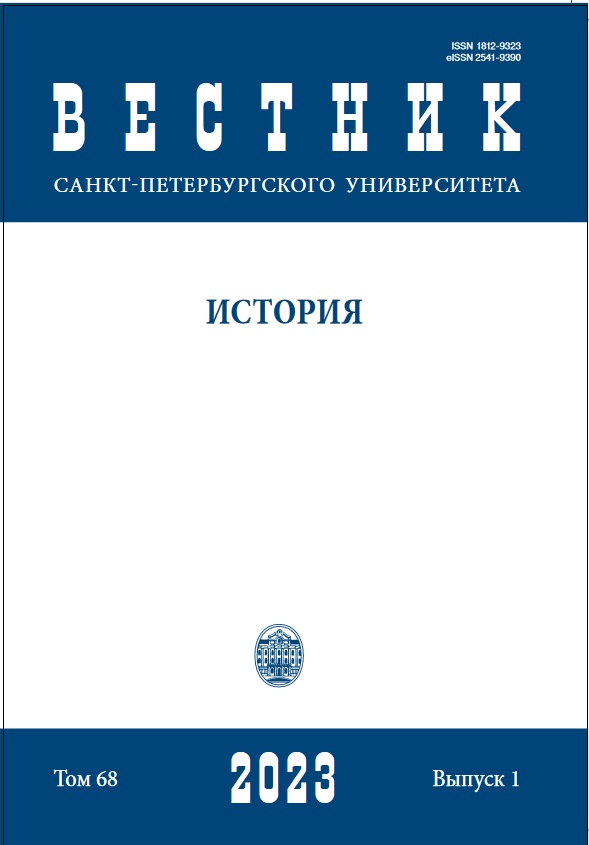Factors of the Fall of the Russian Empire and their Evaluation in Historical Science
DOI:
https://doi.org/10.21638/spbu02.2023.103Abstract
Periods in the life of a country, when it radically changes its civilizational trajectory, cannot but attract the attention of researchers. For the Russian Empire, the First World War turned out to be the zone of such crucial revolutionary turbulence: the empire ceased to exist. What circumstances led to this turn of events? Was the wrong economic policy of the state authorities the main reason for the fall of the monarchy? The issues of state regulation of national economy of Russia during the First World War in the context of possible factors that caused the death of the empire are discussed in the monograph “On the Threshold of the Catastrophe. State and Economy of Russia in 1914–1917” by Irina V. Potkina, Dr. Sci. in History. The logic of the analysis led the scholar to the conclusion that the economic policy of the Provisional Government proved to be destructive for the country. The atmosphere of mutual distrust and suspicion in the Russian society also played an important role. This article continues this theme and shows that some mental and behavioral characteristics of Russian people contributed greatly to the country’s path to the disaster. Some people were involved in illegal activities under the influence of technologies for manipulating public consciousness practiced by opposition political parties. The Bolsheviks, whose activities, from the standpoint of modern Russian legislation, falls under the definition of “extremism”, enjoyed the greatest success. The author of the article concludes that it is necessary to correct the evaluation of historical events in the academic and educational literature.
Keywords:
regulation of the economy, socio-economic legislation, mental and behavioral characteristics, extremist activity
Downloads
References
Downloads
Published
How to Cite
Issue
Section
License
Articles of "Vestnik of Saint Petersburg University. History" are open access distributed under the terms of the License Agreement with Saint Petersburg State University, which permits to the authors unrestricted distribution and self-archiving free of charge.





